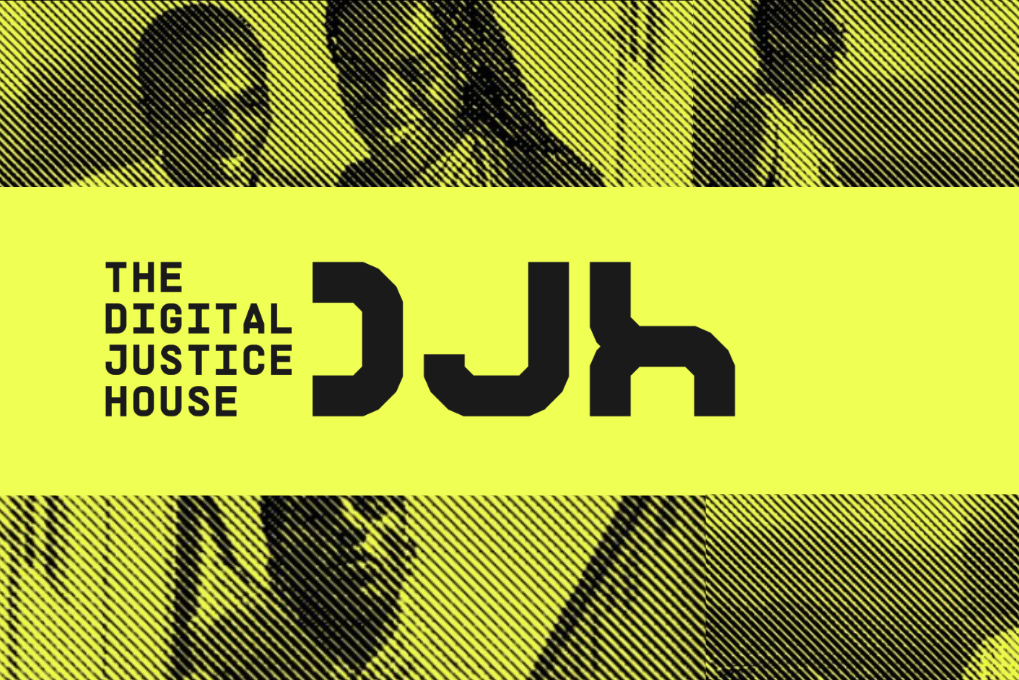TCU Launches Policy Toolkit For Organizational Leaders Looking to Improve Team, Employee Health
Join us on December 13th for a public event where we present our new Digital Justice Everyday toolkit!
Great opportunity for both managers and employees to learn about practical things they can do right now to improve the health of their teams and orgs.
RSVP HERE
This blogpost is written by Danae Tapia, Team CommUNITY's Global Community Manager and Resident Hechicera who is overseeing the NEW Digital Justice House
TCU’s 2020 Community Health Report confirmed my intuition that the mental health of people working in the digital rights community has been deteriorating and leading to burnout, conflicts on teams, loss of talent, and a host of other issues. Observing the impact this phenomena was having on many of my colleagues, I began identifying systematic practices of the field that are contributing to this mental health crisis, and ultimately preventing us from advancing human rights goals.
While therapy is a crucial aspect of healing, to address the current mental health crisis, it must be accompanied by structural changes at the very organizations that make the digital rights field. Failing to do so, critically endangers the future and sustainability of our field.
I’m happy to present to you the first of many practical recommendations for organizational leaders looking for a way forward to improve the health of their teams, organizations, and the very communities they serve.
The Digital Justice Every Day toolkit focuses on three organizational policies that, if properly implemented, can bring dramatic and almost immediate results to our teams, people and work.
Join us on December 13 to learn more about the toolkit, and find out how they can be implemented in your context! Please RSVP here!
Why the Digital Rights Community is Witnessing a Health Crisis
The COVID crisis led millions of people to reflect on their working conditions; many of us acknowledged the physical and mental demands of a workplace. We also witnessed how little companies cared about the emotional stability of their employers, such as in the case of “essential workers” who cleaned our spaces and brought our groceries.
The digital rights field, formed mostly by people working remotely, suffered severe burnout, as many of us were unable to slow down or pause activities. In some cases, organizations were acting as if nothing was happening outside of our screens and conducting business as usual.
Zoom Meditation Did Not Stop or Improve Critical Challenges in our Organizations
Workers were offered Zoom sessions to engage in meditation, received lots of advice on social media to maintain our productivity in the midst of this crisis, but for many people these measures weren’t enough.
As a result, organizations started to deal with massive resignations, low employee retention, big numbers of absenteeism and poor quality of work.
These same trends were happening in the digital rights community.
The Digital Rights space is going through a mental health crisis and its impacting our work, team dynamics, and organizational health. Action is needed now if we want to ensure the future and sustainability of our field.
We encourage you to read our 2022 Community Health Report which details these organizational health issues in detail. Notably, this year Politico wrote about the massive exodus of talent from the digital rights community to big tech. TCU’s own research, conducted by our Director of Community Mental Health, Selma Zaki, also illustrated the grim reality our community members were going through. Of the 200 people who took part in our 2020 Community Health report, 72.1% stated that they were experiencing stress in response to toxicity in the workplace. 66% felt that their mental health has declined. Our preliminary community research conducted in 2022 indicates that these numbers have either stagnated or worsened.
In addition, since the pandemic TCU has been incredibly alarmed about the trends we are observing regarding the inability to attract new talent and retain existing talent. This directly threatens the future of the work we do around public interest technology.
Advancing Labour Rights in the Digital Rights Field Matters
One of my motivations to start this research is because we are in a unique moment in time where individuals working in the digital rights field have enough hand to negotiate crucial advancements regarding our labour rights.
Stepping in the footsteps of historic workers’ movements, we have the opportunity to significantly transform the way we approach work. It is also heartbreaking to see so many people from my generation experiencing disappointing work experiences, unfulfilled promises that presented visions of satisfying jobs, and financial instability.
This research presents evidence-based information that demonstrates the organizational benefits of fairer labour policies. It is possible to say that we are in a unique position to negotiate our way into better workplaces, and, most importantly, into more fulfilling lives.
We Can Support You to Implement or Advocate for these Organizational Policies
Digital Justice Every Day provides information about three crucial policies:
The four-day work week
The right to disconnect
Unlimited vacations
In the upcoming months, we will work with digital rights organizations to implement these policies. We are happy to report that some managers are already working on implementation!
We encourage you to reach out to us if you are interested in exploring these policies, and have questions or need support to do so in your context. Notably, these policies also include recommendations on how to adapt them for freelancers, which constitute a large percentage of the labor market in the digital rights field.
Ultimately, however, through this work, my dream vision is to ignite multiple conversations about obtaining the work conditions that we deserve as human beings, this is why we encourage current employees of the digital rights space to read this toolkit, and show it to their colleagues. This is a moment to start changing the world not with grandiloquent opinions but with concrete transformations.




